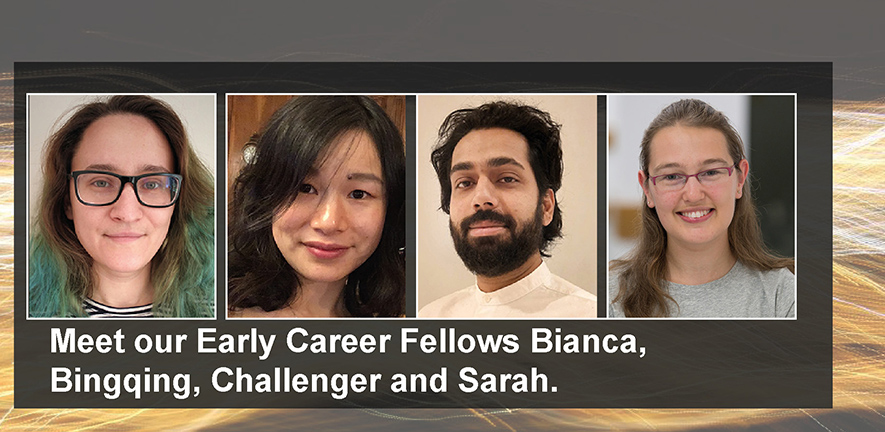
Submitted by Rachel Gardner on Wed, 18/11/2020 - 11:13
Predicting mental health conditions like schizophrenia; accelerating the development of new materials; investigating the building blocks of living systems; and advancing our understanding of the fundamental dynamics of the Universe. Four new Early Career Fellows who have just joined this Department's Accelerate Programme will be using artificial intelligence to advance their research in these fields – and equipping young researchers across the University with the skills to use it in theirs.
The Accelerate Programme for Scientific Discovery, which is supported by a donation from Schmidt Futures, is aimed at advancing the frontiers of science through the application of AI.
Based here in the Department of Computer Science and Technology, the Programme will provide young researchers in a range of disciplines with specialised training in the powerful techniques of machine learning and artificial intelligence, which have the potential to speed up the pace of discovery.
"Accelerate is a rare opportunity to resolve some of the most important scientific challenges of today through the concerted efforts of a team of experts from multiple disciplines."
Challenger Mishra
As part of the programme, four new Early Career Fellows – Bianca Dumitrascu, Bingqing Cheng,Challenger Mishra and Sarah Morgan – have just been appointed. They will be helping teach other researchers across the University skills in these areas, as well as furthering their own research.
"Wider use of AI tools across research disciplines could advance our understanding of core concepts in science, unlocking new scientific insights and creating wider benefits for society – from finding new materials to improving healthcare diagnostics. To achieve this goal, we need to build a community of committed researchers working at the interface of AI and science," says Jessica Montgomery, Executive Director.
"The Accelerate Programme will connect the Department's expertise in machine learning with the breadth of research expertise across the University. The work by Bianca, Bingqing, Challenger and Sarah will be at the heart of these efforts."
"Accelerate is a truly interdisciplinary programme, which is essential to tackle the big challenges of the 21st century, like improving mental health for all," says Sarah Morgan (pictured right), whose research applies machine learning to challenges in psychiatry. "Mental health conditions can be extremely debilitating. Machine learning can help us treat these conditions more effectively, by allowing us to develop better diagnostics and predict patient outcomes."
"Accelerate is a rare opportunity to resolve some of the most important scientific challenges of today, through the concerted effort of a team of experts from multiple disciplines," says Challenger Mishra (seen left), who is using machine learning to advance understanding of String Theory, a mathematical framework that unifies all fundamental interactions in the Universe.
"Machine learning can help us treat mental health conditions more effectively by allowing us to develop better diagnostics and predict patient outcomes."
Sarah Morgan
"Using machine learning to advance research into String Theory can shed light on some of the deepest questions about our physical Universe. I'm excited to join a group of world-leading researchers tackling this challenge."
As Fellows, Challenger and Sarah are joined by Bianca Dumitrascu and Bingqing Cheng. Bingqing applies machine learning to challenges in the physical sciences, developing methods that can help researchers understand and predict interactions between atoms, and accelerating the design and development of new materials.
Bianca's work in computational biology interrogates the complexity of biological systems, investigating how machine learning-enabled advances in genomics can help researchers understand the building blocks of living systems.
"Machine learning and AI are increasingly part of our day-to-day lives, but they aren’t being used as effectively as they could be in research, due in part to major gaps of understanding between different disciplines," says Neil Lawrence, DeepMind Professor of Machine Learning and Programme Director.
"The Accelerate programme – and our four new Fellows – will help us to close these gaps by training physicists, biologists, chemists and other scientists in the latest machine learning techniques, giving them the skills they need while accelerating the excellent research already taking place at the University."
For further information about the work of the Accelerate Programme and its new fellows, please visit: https://www.cst.cam.ac.uk/accelerate

